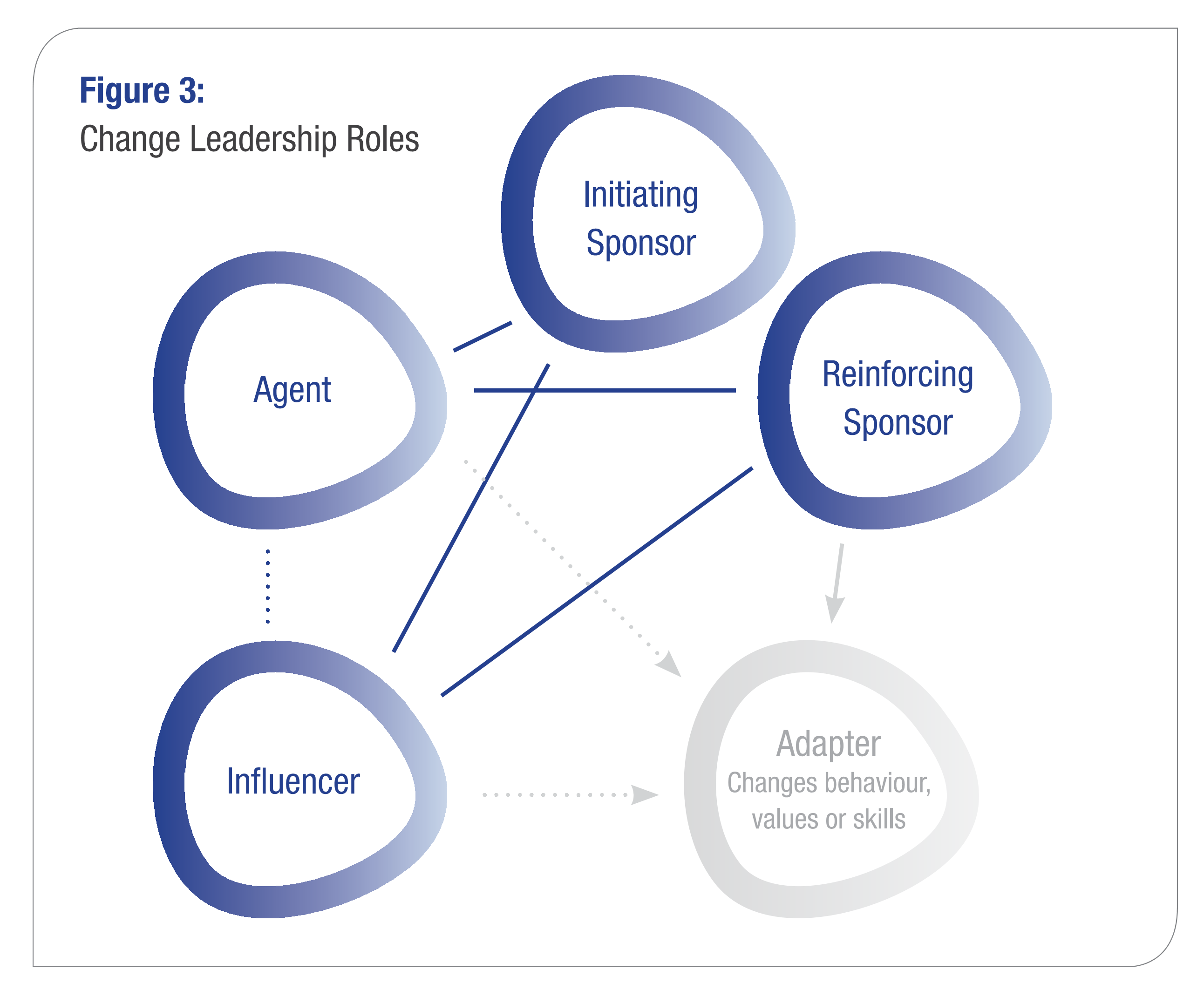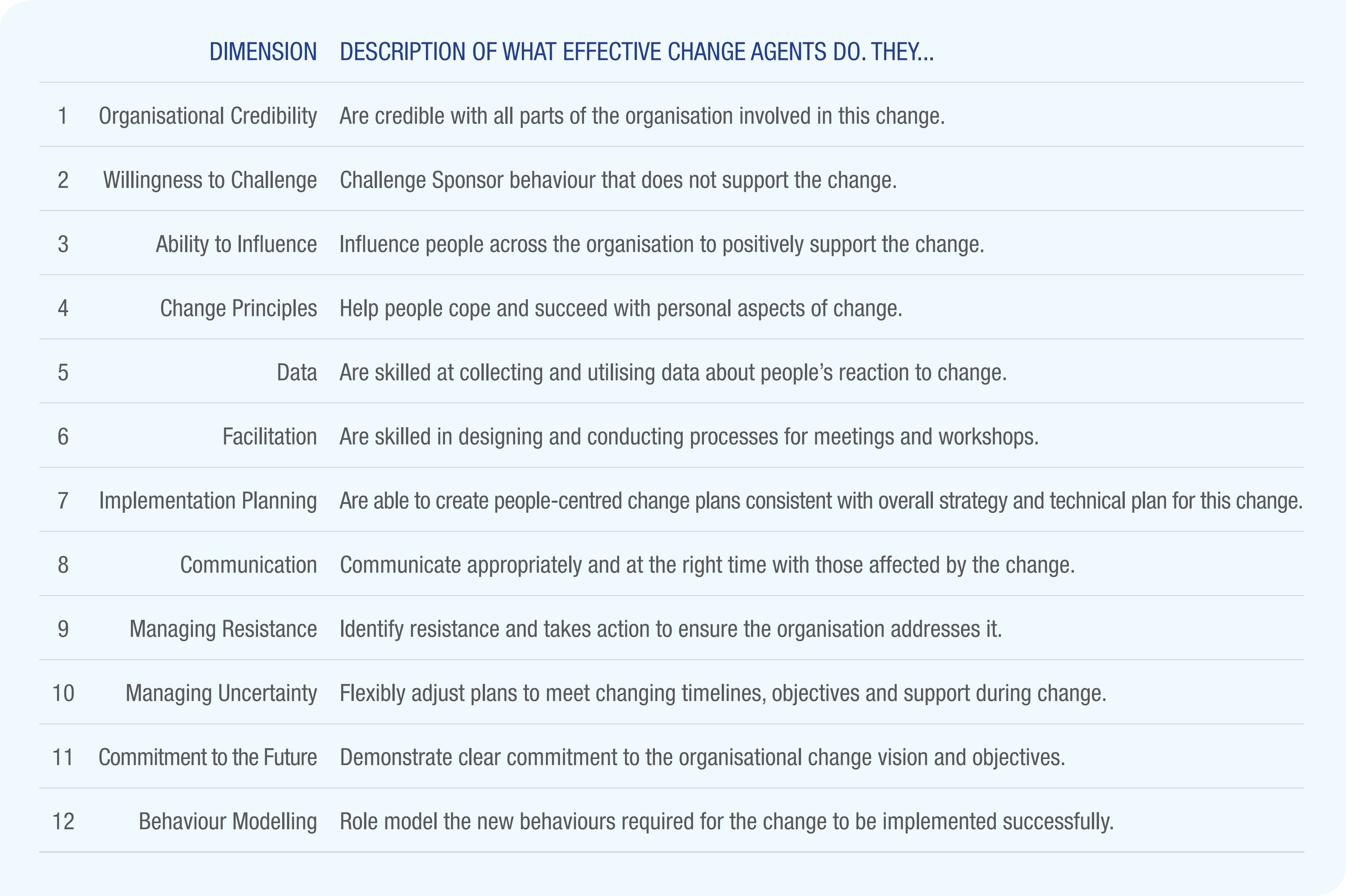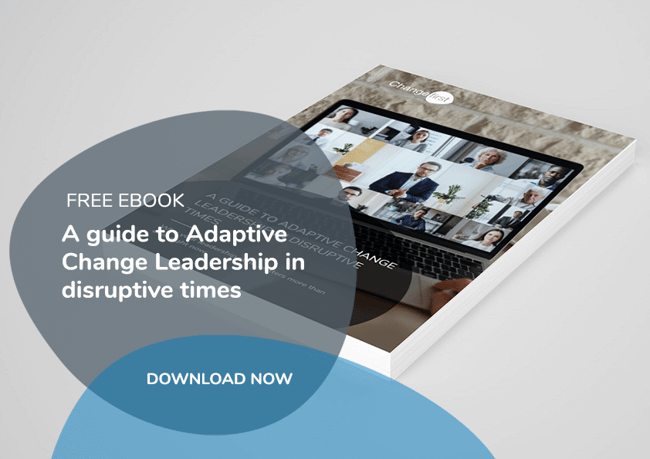Change leadership has always been an important component of implementing successful change. But the need for effective change leadership and the role of leadership in organizational change has been brought into even sharper focus by the increased level of change that organizations have had to deal with in recent months.
It may seem obvious, but too often we have seen this concept only given lip service, with change leaders appointed - but without those individuals fully embracing their role and showing real leadership for change.

The three change leadership roles
Effective Change Management leadership is built on three separate leadership roles, each with different levels of power to provide direction, guidance and support across the depth and breadth of the organization:
- Sponsor role: brings formal organizational power to authorize, initiate and reinforce change.
- Agent role: adds power to the project with a clear responsibility for planning and execution.
- Influencer role: often lacks formal authority, but has significant informal power and influence within the change environment.
For successful change leadership, these roles use their power to operate effectively as a network.

There is no substitute for active sponsorship from change leaders, however effective change leadership is not just about the words and actions of senior people. The support of middle and front-line managers must be enlisted; the ability of managers to help teams adapt to change is a cornerstone of managing successful organizational change.
Underpinning the whole change effort is the role of the change agent, who provides guidance and direction, and ensures the sponsors intentions are carried out.
Change leadership can be taught
Some individuals have a natural affinity for taking general leadership roles, while others have a need for training before assuming an effective role of leadership in the change process. But all leaders require ongoing development of their leadership skills.
The same holds true for change leaders. While some individuals may have a natural affinity for some of the skills we see in great change leaders, being an effective change leader is not necessarily an inherent trait. It can be learned, and above all must be nurtured and developed.
Even the most experienced change leaders gain benefit from taking a step back and reviewing their strengths and weaknesses from an objective viewpoint, and targeting areas for development.
Essential change leadership skills
Understanding what skills to identify, train and nurture is the next step in building your change leadership capability. Over the next couple of weeks, we will be looking in more detail at the change sponsor role. This week however, we wanted to share the key skills of a change agent.
This leadership role is pivotal in every change project. Not only does the change agent need to have a strong understanding of the mechanics of a change management framework, but they need to engage and influence across the organization while also ensuring the change management plan is on track.
In our experience, we have found that great change agents have the following skills, identified in 12 dimensions.

Change agents play a pivotal role in building effective change leadership
Change agents do not only need to be effective change leaders themselves, they need to ensure that the right network of change sponsors is in place, and the change sponsors have the right skills and information to drive change across the organization.
Ensure your change leadership training and coaching is actually addressing the specific skill gaps in your organization. While general change management training has its place, especially for those who are new to change management, targeted training and coaching will take your change leadership to the next level.
You can easily and accurately assess the effectiveness of your change leadership structure through the Change Agent and Sponsor Assessment tools, both of which form part of our PCI change management methodology (and available on Roadmap Pro).
Building effective change leadership
Building effective change leadership in your organization is more than just holding a change management workshop for key staff. Leadership in change is about ensuring the 3 key leadership roles work together to drive change.
It is about ensuring your change agent has the skills to drive the people change elements of a program, as well as coach and support the change sponsors.
And finally, it is about using data to objectively assess where your organization’s change leadership skills need bolstering, remembering that change leadership is a skill that can be taught.
The key to delivering on your change leadership strategy is to have the structured approach to delivering change across your organization. One key component of this to give your executive teams the tools and skills to help them succeed in what is an increasingly disrupted and competitive environment. Which is where our Executive Bootcamp comes in.
|
|
Give your leaders the tools and skills to succeed Find out about our immersive and highly interactive Bootcamp which is focused on developing the role of your leaders in change.
|





Leave a comment